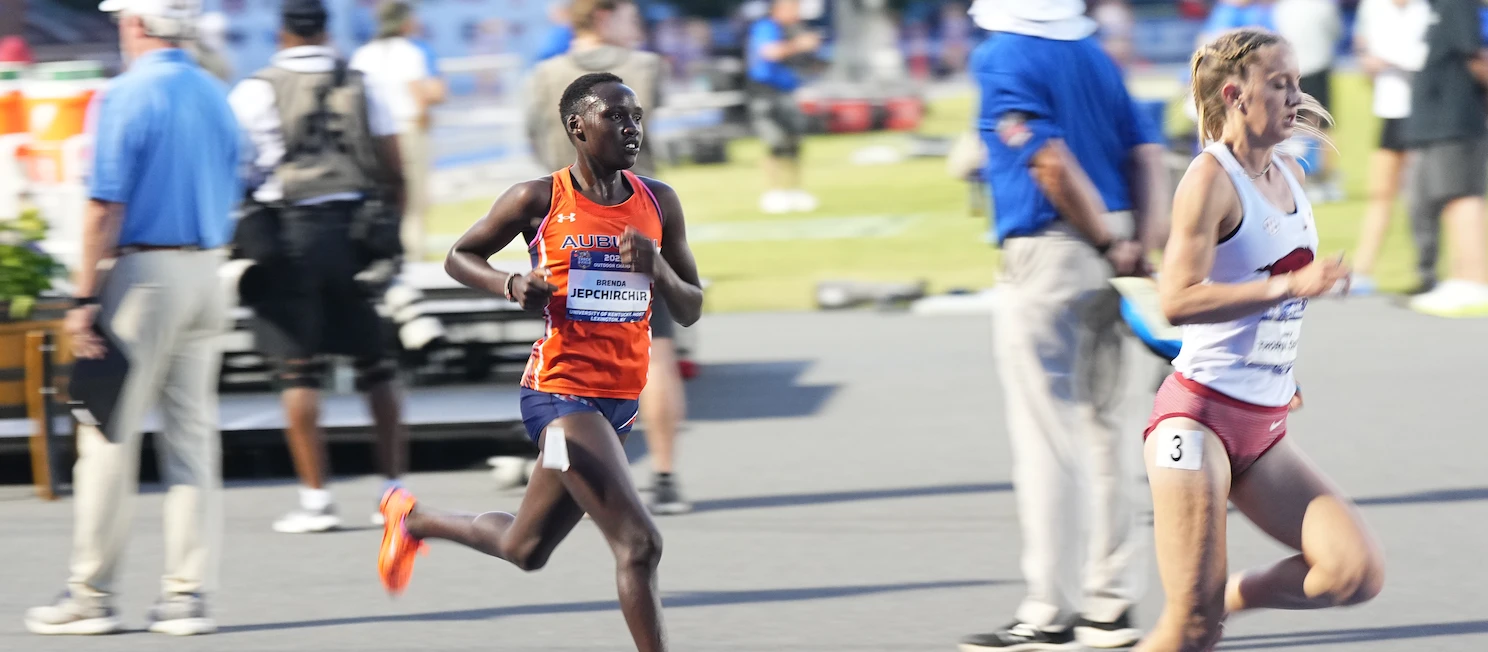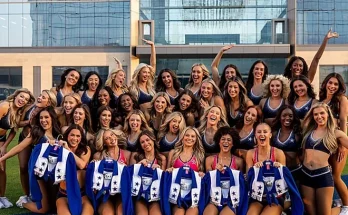In a development that has electrified the collegiate track and field world, Peres Jepchirchir — the Kenyan distance-running phenom — has officially been declared eligible to compete in the NCAA Outdoor Track and Field Championships. This long-awaited decision comes after months of speculation regarding her eligibility status, transfer clearances, and international student-athlete compliance. With her eligibility now secured, Jepchirchir is poised to make a major impact on one of the biggest stages in college athletics.
The Athlete Behind the Name
To fully appreciate the magnitude of this announcement, it’s essential to understand who Peres Jepchirchir is. Born in Kenya, a country renowned for its dominance in long-distance running, Jepchirchir burst onto the global stage with a resume most NCAA athletes could only dream of.
Although she shares a name with the 2020 Olympic gold medalist in the marathon, the collegiate Jepchirchir is a rising force in her own right. A former standout at the junior level in Kenya, Jepchirchir’s journey to the NCAA began with her recruitment by a Division I powerhouse in distance running — a program known for shaping Olympians and national champions.
Her talent was immediately apparent in cross-country and indoor track seasons. Whether dominating regional meets or posting world-class times at altitude, Jepchirchir quickly became a vital piece of her team’s success. Yet, questions lingered about whether she would be cleared to compete in the spring’s marquee event: the NCAA Outdoor Championships.
Clearing the Hurdles: Eligibility and Compliance
For international athletes, gaining eligibility in the NCAA is often a rigorous process, governed by both academic and athletic standards set by the NCAA Eligibility Center. In Jepchirchir’s case, several issues complicated the situation:
- Previous competition in unsanctioned meets abroad
- Questions about amateur status
- Documentation of educational background and English proficiency
- Transfer rules involving her movement from a training academy in Kenya to a U.S. university
NCAA bylaws are particularly strict when it comes to maintaining amateur status. Any prize money earned, even for travel or lodging reimbursement, can trigger an investigation. Fortunately for Jepchirchir and her coaching staff, the compliance departments worked tirelessly with the NCAA, providing extensive documentation that proved she had maintained her amateurism.
Her academic records, initially delayed due to school closures and administrative backlogs in Kenya, were finally verified and cleared. That, combined with her enrollment in a full-time academic program and active participation in university athletics since the fall, made her case solid.
Finally, on May 28, the NCAA Division I Track and Field Committee issued its decision: Peres Jepchirchir is eligible to compete in the 2025 NCAA Outdoor Track and Field Championships.
Event Selection: 5000m and 10,000m
Jepchirchir is expected to compete in the 5000-meter and 10,000-meter events — races that have traditionally showcased the best of NCAA distance running. Her times in qualifying meets this spring place her among the top five in the nation in both events.
Her season-best 5000m time of 15:17.89 at the Payton Jordan Invitational was not just a personal best — it was also the fastest NCAA mark of the outdoor season until recently. Meanwhile, her 10,000m effort at the Stanford Invitational — 31:43.22 — ranks second only to last year’s NCAA champion, and puts her within reach of breaking the NCAA record.
Even more impressively, these times were achieved after a late start to her season due to clearance issues, meaning Jepchirchir could be peaking at just the right moment.
Training with Purpose
Jepchirchir’s training regimen has been closely monitored by her coach, a former Olympic steeplechaser who understands the physical and mental toll of elite competition. Her preparation has focused on three key areas:
- Altitude endurance – Much of her base training took place at altitude in Flagstaff, Arizona, where the team conducted spring break camp.
- Pace control – Her workouts have emphasized negative splits and surge responses, a strategy designed to simulate the tactical nature of NCAA championship races.
- Race visualization and strategy – With international experience under her belt, Jepchirchir has been coached to anticipate moves from seasoned NCAA veterans.
Her training partners include All-Americans and Olympic hopefuls, ensuring that she is tested daily. As one teammate said, “Running with Peres is like chasing the wind. You never catch her — you just try to stay close.”
The Competition She Faces
The women’s distance field at this year’s NCAA Outdoor Championships is arguably the deepest it has been in a decade. Jepchirchir will face elite runners such as:
- Katelyn Tuohy (NC State) – A reigning NCAA champion known for her closing speed and tactical brilliance.
- Parker Valby (Florida) – An NCAA Indoor 5000m champion with blazing early splits.
- Hilda Olemomoi (Alabama) – A fellow Kenyan with a punishing kick.
- Fiona Hawkins (Oregon) – Known for her consistency and tenacity, Hawkins will be a major player in the 10,000m.
The 5000m final could come down to a battle of surges, while the 10,000m may be more of a test of attrition — perfect for someone like Jepchirchir, who has trained at high volume and high intensity for most of her career.
The Historical Implications
If Jepchirchir medals — or even wins — in either event, it would have profound implications:
- She would be the first Kenyan-born woman to win an NCAA title in the 10,000m since Sally Kipyego (Texas Tech) in 2008.
- She could set an NCAA meet record if conditions are favorable.
- She would solidify her spot as a future Olympic contender for Kenya.
More than just athletic success, her story adds to the growing narrative of international athletes thriving in the NCAA system. Her journey demonstrates how the NCAA remains a global magnet for developing talent, and how it can be a transformative experience for athletes from diverse backgrounds.
Team Impact
Jepchirchir’s eligibility also significantly bolsters her team’s chances of winning a team national championship. Her school — which finished in the top five last year — is now positioned to challenge perennial favorites like Arkansas and Oregon.
A win in the 10,000m would score 10 points, while a podium finish in the 5000m could add another 6–8 points. Combined with the team’s strong showing in field events and relays, her contribution could be the X-factor.
As her coach said in a recent press release, “Peres is not just running for herself. She’s running for her teammates, for her country, and for everyone who has supported her journey to this point.”
A Role Model for the Next Generation
Jepchirchir’s rise hasn’t gone unnoticed in her homeland. Young athletes at her former high school in Kenya have been watching her progress online, sending her messages of support, and even hosting watch parties during her U.S. races.
In an interview after a recent race, Jepchirchir said, “I want to be a role model to young girls in Kenya. If they see me, they will know they can go to school, run fast, and make a future.”
Her story is already inspiring a new wave of Kenyan high schoolers to pursue education and athletics together — something that was often seen as mutually exclusive in rural parts of the country.
Looking Ahead
Beyond the NCAA Championships, the future is bright for Jepchirchir. Depending on her performances in Eugene, she could qualify for:
- Kenya’s Olympic trials for the 2028 Los Angeles Games
- World University Games
- Professional sponsorships and NIL (Name, Image, and Likeness) opportunities
Her academic performance — maintaining a 3.8 GPA in environmental science — means she also has plans beyond the track. She’s expressed interest in working on sustainability projects that impact rural farming communities in East Africa.



